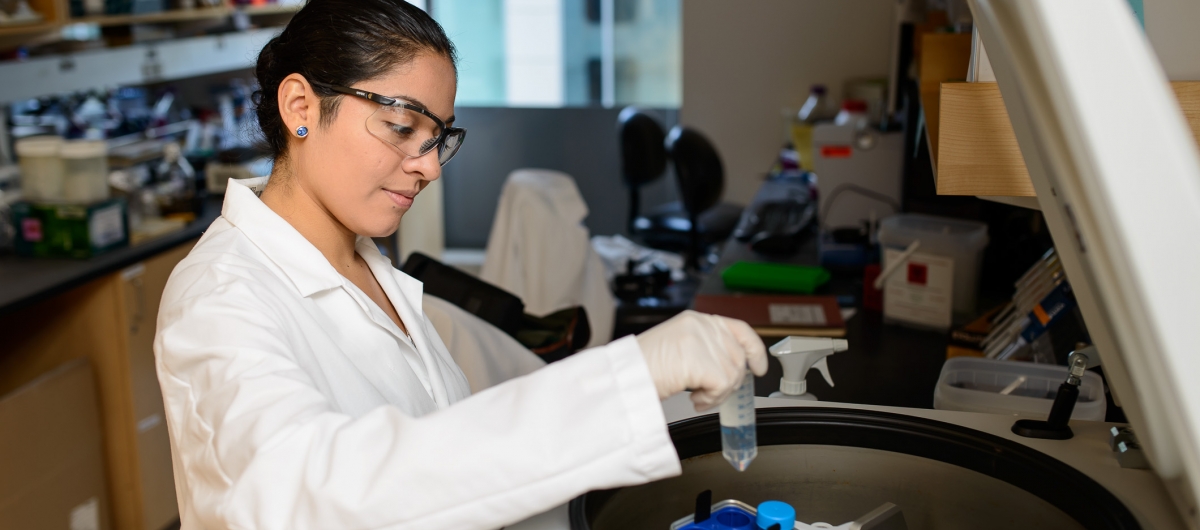What are the differences between the CSB graduate program and the Biology or Biological Engineering graduate programs?
Many students currently do research in computational and systems biology at MIT in the biology department, the biological engineering division, and other programs. The CSB curriculum differs from other MIT Ph.D. programs because its primary emphasis is on interdisciplinary training and research that spans biology and the quantitative sciences. For example, CSB Ph.D. students are required to take classes from different departments. This is possible, but less common, in the biology or bioengineering programs. CSB Ph.D. students are also required to have faculty representing diverse areas of computational and systems biology on their thesis committees, and they must pass qualifying exams that focus on foundational material in this new area. The CSB Program further provides an umbrella that encompasses most of the faculty at MIT who are involved in computational or systems biology. Students in the CSB Program will therefore find it particularly easy to carry out rotations in different departments and to select a thesis advisor without regard to their formal departmental affiliation. The CSB Program is also much smaller than other graduate biology programs at MIT, and thus is able to provide a customized plan of study for each student.
For information about the Biology graduate program, go here.
For information about the Biological Engineering graduate program, go here.
Can I apply to more than one of these programs?
Yes. You may apply to as many MIT graduate programs as you wish, though you must submit an application and application fee directly to each.
Do I have to have a double major to apply to the CSB Ph.D. program?
No. Preference is given to students with strong backgrounds in both biology and a quantitative science, but this need not be demonstrated with a double major.
Does CSB mean the union of computational and systems biology or the intersection? Do I have to study computational biology?
Computational and systems biology at MIT is broadly defined and embraces purely experimental as well as purely theoretical or computational studies. Students in the CSB Ph.D. program will obtain training (through course work) in both computational and systems-level approaches to biology, but their thesis research may or may not include a computational (or experimental) component. For example, students may choose to engineer devices for high-throughput biological measurement.
Am I qualified for the CSB Ph.D. Program?
All interested students in their senior year of undergraduate school and above are strongly encouraged to apply. Successful applicants will have exemplary grades and significant research experience. A good fit between a student's interests and the goals of the program is essential, and evidence of this is sought in applications.
Is financial support available?
Yes. Students in the CSB Ph.D. program can expect to be funded (tuition, health insurance, plus stipend) for their entire time in the program, contingent on satisfactory progress, regardless of financial means or citizenship. Funding is through graduate research assistantships, teaching assistantships, training grant support, and/or graduate fellowships.
Can I obtain a Master's Degree in the CSB Ph.D. Program?
No. The CSB Ph.D. program is strictly a Ph.D. track and we do not offer a Master's degree track.
CSB seems to cover a very broad intellectual landscape. How will I decide which courses to take?
The CSB Graduate Committee is composed of faculty from multiple departments, including Biology, Biological Engineering, and Electrical Engineering & Computer Science. Students will be assigned individual academic advisors upon their arrival at MIT, and the entire committee is committed to helping each student plan a program that provides breadth in computational and systems biology as well as depth in their particular area of interest.
Can I have two thesis advisors in the CSB Program?
Yes. Students are encouraged to set up collaborations and to establish relationships with faculty having diverse areas of expertise. The success of co-advising relationships depends on the specific nature of the project being considered, and this should be discussed with the CSB Graduate Committee. With a common goal, joint mentorship has the potential to stimulate ground-breaking research that would not be possible with a single advisor.
What careers are available to students studying computational and systems biology?
The career prospects for students graduating from the CSB Ph.D. program are expected to be bright in the industrial, academic, and government lab sectors. Research projects and training plans in this area have been met with enthusiastic support from industrial, academic, and government groups, and strong interest has been expressed for interacting with and recruiting graduate students trained in interdisciplinary thinking in this area. For example, Merck and Co. has established a new set of graduate and postdoctoral fellowships at MIT targeted particularly toward this group of promising young scientists. It is anticipated that researchers trained at the biology/engineering interface will be well suited to tackling problems in biology, biotechnology, and medicine in the coming decades.
I'm not sure if this program is right for me. How can I get additional information?
E-mail: csbphd@mit.edu with your questions!

